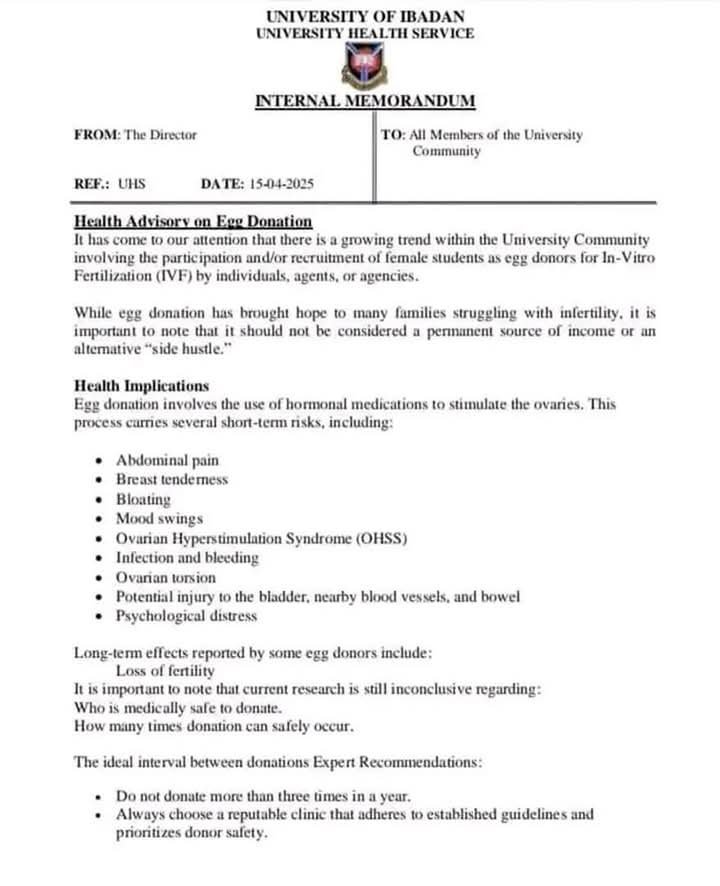The University of Ibadan says it is worried at the alarming rate of female students engaging in egg donation as a source of income.
In a memo dated April 15, 2025, the University Health Service cautioned against viewing egg donation as a long-term financial solution.
Dr. Aderonke Ajayi, Director of the University Health Service, described egg donation as a process that requires hormonal stimulation of the ovaries. While it has helped many families struggling with infertility, it comes with serious health risks.
“Egg donation involves the use of hormonal medications to stimulate the ovaries. This process carries several short-term risks, including abdominal pain, breast tenderness, bloating, mood swings, Ovarian Hyperstimulation Syndrome (OHSS), infection, bleeding, ovarian torsion, potential injury to the bladder, nearby blood vessels, and bowel, and psychological distress,” Ajayi stated.
She warned that some donors have reported long-term effects, including loss of fertility.
Current research is inconclusive on who is medically safe to donate eggs and how frequently one can undergo the procedure without risks.
Need for Extra Caution and Safe Practices
Ajayi advised students to approach egg donation cautiously and to prioritize their health over financial incentives.

“It is important that our students understand the health implications and long-term consequences of egg donation,” she stated.
She recommended that students choose reputable clinics that follow strict medical guidelines and ensure donor safety. According to her, egg donation should not be done more than three times a year.
The university urged members of the community to share this information and protect young women from exploitation or misinformation about the risks involved.
Like 👍, Comment, share this article, and Follow us on our social media handles.






